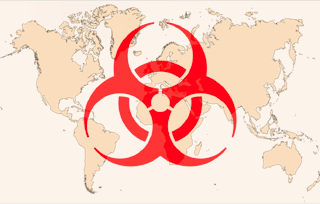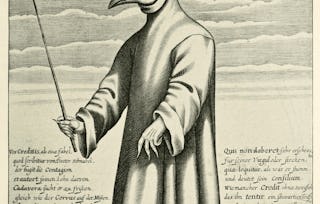Through ages, doctors and scientists have worked hard to fight against different diseases, but it is not easy to find the effective way to deal with them. However, it is a lot faster and easier to approach new problems nowadays with the help of past experience and modern technology. In this course, we are going to show you some common diseases and its current management. At the same time, we will also show you how modern medicine has developed and what breakthroughs are specially made in Taiwan.

Pioneers of Medicine and Medical Breakthroughs in Taiwan
5 days left! Gain next-level skills with Coursera Plus for $199 (regularly $399). Save now.

Recommended experience
What you'll learn
Recognize the basics of Hepatitis B, chronic kidney disease and extracorporeal membrane oxygenation
Skills you'll gain
Details to know

Add to your LinkedIn profile
See how employees at top companies are mastering in-demand skills

There are 7 modules in this course
Welcome to Pioneers of Medicine and Medical Breakthroughs in Taiwan!
What's included
1 video2 readings
Many of us have received Hepatitis B vaccine in our earlier life and perhaps some of you have just received a booster shot recently. However, do you know why we should receive the Hepatitis B vaccine? Although the vaccine can prevent the contraction of hepatitis B virus, there are still many HBV carriers all around the world. Thus, the treatment of Hepatitis B should also be sought to improve the outcome of the patients. In this lesson, you will learn about how the vaccine changed the fate of many people and what antiviral treatments are available for hepatitis B.
What's included
10 videos1 reading1 assignment
The Hepatitis B immunization program has been a success in Taiwan. Since the implementation of the vaccination program, the prevalence and incidence of Hepatitis B have dropped significantly. In order to optimize the protection against Hepatitis B, the government has to prevent the transmission of the virus. One route of transmission is the vertical transmission, which is mother-to-child transmission. If a pregnant woman is a hepatitis B carrier, will the infant be infected too? What can we do to prevent vertical transmission? In this lesson, pediatrician Dr. Chang will talk about the strategy to tackle this problem.
What's included
4 videos1 assignment
Chronic kidney disease (CKD) is very common in Taiwan. With the progression of CKD, the patient will reach the final stage of the disease, which is called End-Stage Renal Disease (ESRD). Most patients with ESRD will have to receive dialysis to substitute for their failing kidney. The prevalence of dialysis in Taiwan is among the top in the world due to its health care policy. In this talk, nephrologist Dr. Chao will give you an insight about end-stage renal disease and its management.
What's included
15 videos1 reading1 assignment
End-stage renal disease (ESRD) is the final stage of chronic kidney disease. It means that the kidney can no longer function on their own. At this point, interventions must be done to help the failing kidney. In this lesson, you will learn about the role of hemodialysis, peritoneal dialysis and kidney transplantation in ESRD, which have saved many lives. In this talk, Prof. Tsai, an experienced and skillful renal transplant surgeon, will also share his experience in living-related renal transplantation in National Taiwan University Hospital.
What's included
15 videos1 reading1 assignment
Basic life support has been a critical skill for everyone when facing emergency. Nowadays with the progression of modern medicine, we can actually save a patient without heart or lung! Through this lesson, you are going to take a glimpse on how ECMO (Extracorporeal membrane oxygenation) works, and those real cases saved by the use of this machine. At the same time, ECPR (Extracorporeal Cardiopulmonary Resuscitation) developed by NTUH (National Taiwan university hospital) will also give you the new concept of resuscitation, and you are sure to better understand how doctors save severe patients through these incredible ways.
What's included
7 videos1 assignment
What's included
1 video1 peer review
Instructors



Offered by
Explore more from Public Health
 Status: Preview
Status: PreviewThe Hong Kong University of Science and Technology
 Status: Free Trial
Status: Free TrialUniversity of Pennsylvania
 Status: Preview
Status: PreviewThe Pennsylvania State University
 Status: Preview
Status: PreviewUniversity of California, Santa Cruz
Why people choose Coursera for their career

Felipe M.

Jennifer J.

Larry W.

Chaitanya A.
Frequently asked questions
To access the course materials, assignments and to earn a Certificate, you will need to purchase the Certificate experience when you enroll in a course. You can try a Free Trial instead, or apply for Financial Aid. The course may offer 'Full Course, No Certificate' instead. This option lets you see all course materials, submit required assessments, and get a final grade. This also means that you will not be able to purchase a Certificate experience.
When you purchase a Certificate you get access to all course materials, including graded assignments. Upon completing the course, your electronic Certificate will be added to your Accomplishments page - from there, you can print your Certificate or add it to your LinkedIn profile.
Yes. In select learning programs, you can apply for financial aid or a scholarship if you can’t afford the enrollment fee. If fin aid or scholarship is available for your learning program selection, you’ll find a link to apply on the description page.
More questions
Financial aid available,
¹ Some assignments in this course are AI-graded. For these assignments, your data will be used in accordance with Coursera's Privacy Notice.












